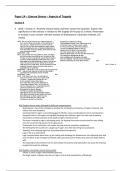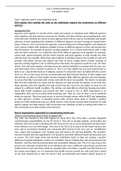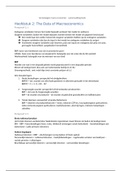Exam (elaborations)
English Literature - Paper 1A Past Papers and Answers / Exemplar answers.
English Literature - Paper 2A Past Papers and Answers / Exemplar answers. Shakespeare Othello, Death of a Salesman, Keats poetry selection. Mock answers from past papers in 2018, 2019, 2020, 2021
[Show more]







